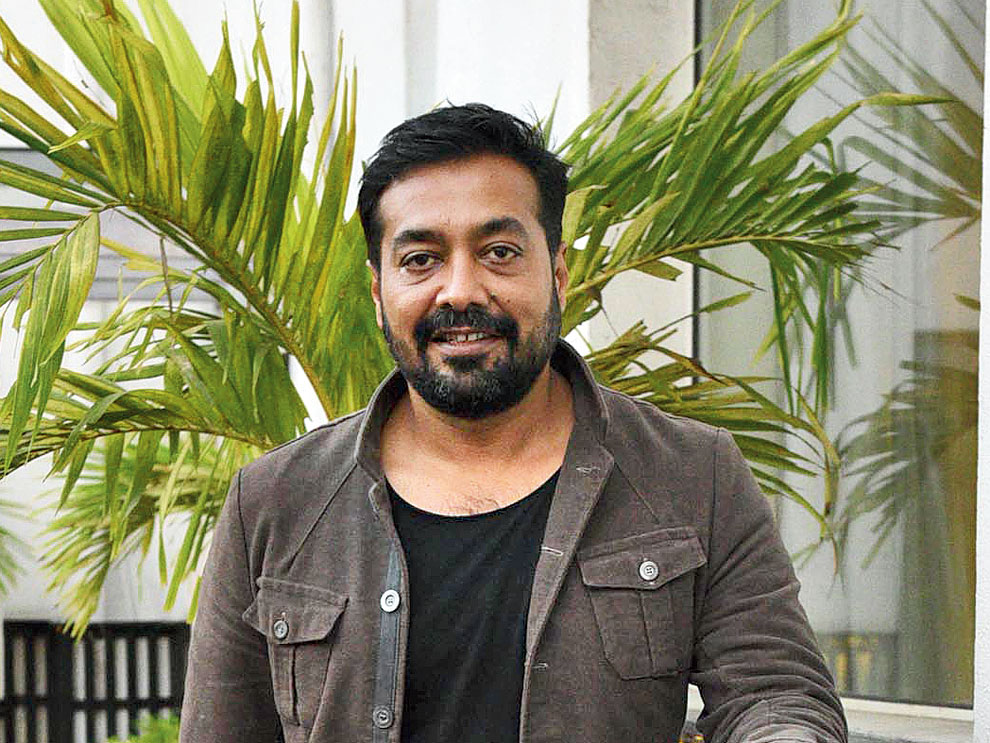NEW DELHI : According to his “Ludo” actors, filmmaker Anurag Basu withholds parts of the script from them only to shout impromptu directions from the loudspeaker during the shoot, and the director, best known for “Barfi!” and “Jagga Jasoos”, admits he is a case of “organised mess”.
The idea behind not giving a complete narration to the actors, he said, is to achieve an “organic performance”.
“I am like that in everything in my life. You should see the kitchen when I cook, what ‘raita’ (mess) I make. But I still make good food,” Basu said.
“Ludo”, an absurdist crime comedy anthology, has received a generally favourable response on its November 12 release on Netflix.
Following four close-knit stories with a stellar ensemble cast — including the likes of Pankaj Tripathi, Rajkummar Rao, Fatima Sana Shaikh, Abhishek Bachchan, and Shalini Vats — is impossible if one is disorganised, the director said.
“When you have a single story, you can change things here and there. But when one story is interlinked to another, a lot of things are planned.
“The problem my actors often have is that I don’t give the entire film (script) to them before. I just ask them to come on set, I have started doing this for the last four-five times. I feel something new might strike me while shooting. So, I delay my process till the last moment,” Basu told PTI in a telephonic interview.
The filmmaker, who previously made the 2007 ensemble romance drama “Life… In a Metro”, said it is the novelty in a project that he helps him create his vision, rather than the idea of dealing with multiple stories.
“I thrive on newness. Right now, I have too many scripts and that’s the problem. I’m unable to pick one from them. Decision of what to do next is the biggest problem.”
In “Ludo”, Basu shouldered four more duties – of writing, cinematography, producer and also had a cameo.
The filmmaker, who began his journey from the small screen and has directed popular soap opera “Koshish… Ek Aashaa” starring Sandhya Mridul, and “Stories by Rabindranath Tagore”, said in his television days, he used to operate the camera and do direction simultaneously.
“When I came in films, I stopped doing camera work as films were shot on film (negative), so it used to be a lot of responsibility. Things have become easier with digital. Having said that, the camera is the director’s responsibility.”
As a director, Basu said he is “greedy” about making something for every kind of audience.
“There are so many people around us who haven’t gone to a cinema hall in years. Television has another audience. Sometimes there you have to keep your rights and wrongs aside, and think of an audience that will watch it. Make both ‘Koshish… Ek Aashaa’ and ‘Barfi!’ convincingly… I’m two different persons for two different mediums.”
In “Ludo”, he creates a parallel universe of people who still have some semblance of naivety in them and the director said he doesn’t judge his characters.
“Essentially these are all love stories with different shades and sub genres. I tend to fall in love with such people as well so in my stories you will find that reflection. I don’t pass judgement on my characters. If you throw the cynicism away for a bit, be optimistic and happy, this flows automatically.”
The nameplates on cars of different colours in these stories show ‘LUDO’ as the region they all are set in, giving a bit of a “fantastical” edge to the story.
“I travel a lot. When you travel, you see fields and there are trains running on the side, all these things sort of enter your hard disk. All these places become part of your story while writing. I didn’t want to specifically tell people where we have based the film.”
Asked about the criticism that the film was too lengthy at 150 minutes, Basu said it was designed for the big screen with the interval consideration in place.
“People tend go out of the hall for a break during interval and the writing gets altered due to that. One has to restart the film after they come back from the interval. We all try to do something new which also becomes a commercial hit. That hunger will be there.”
Asked if it was time creative people did away with making films according to the interval, Basu said filmmakers should try to come out of “traditional trappings of writing” to discover something new.
“It is because of this reason we still haven’t received global recognition for our films. Korean cinema and others have an international audience. Ours is mostly the Indian Diaspora. From now on, I will not write my films according to the interval.”
The multiple stories in “Ludo” remind one of “Life… In a Metro” and Irrfan’s pairing with Konkona Sensharma in one of the stories.
Basu said he recently spoke to producer Sutapa Sikdar, the late actor’s wife, and discussed how they missed Irrfan being a part of “Ludo”.
“Irrfan had sown the seed of ‘Metro 2’ in my mind. I wrote the script of ‘Metro 2’ because of him. I wanted to cast him in ‘Jagga’ but that couldn’t happen. Then he asked me to make ‘Metro 2’. Now, I don’t know,” he said about Irrfan, who passed away in April after a two year-long fight with a rare form of cancer.
There is a discernible shift in his cinema with “Gangster” (2006), Basu said, but it has nothing to his successful battle with cancer.
“From ‘Gangster’, there was a little change. More than my illness, what has changed my life is my kids and marriage. You become a different person and when that happens your cinema changes, your outlook changes. That was my turning point. ‘Barfi!’ and others came after it. My world changed; my films changed,” he said. (AGENCIES)
Trending Now
E-Paper


